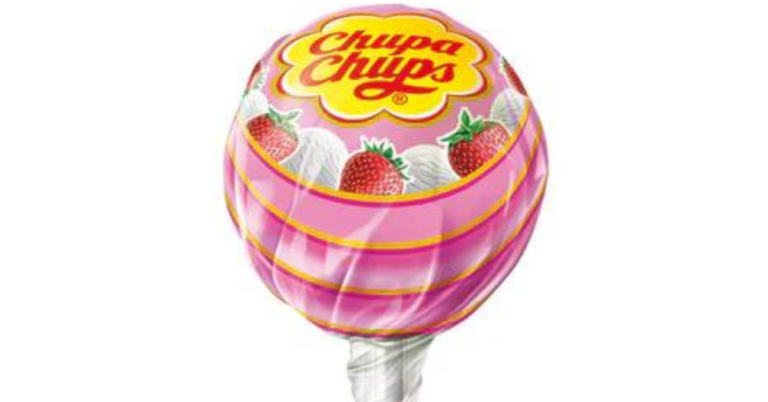In the realm of confectionery, few brands evoke as much nostalgia and delight as Chupa Chups. With its iconic lollipop design and a wide array of flavors, Chupa Chups has been a favorite treat for generations of candy lovers worldwide. This article takes a closer look at the history, marketing strategies, flavor innovations, and cultural impact of Chupa Chups, tracing its journey from a small Spanish candy shop to global candy dominance.
Origins and Early History
The story of Chupa Chups begins in 1950s Spain when Enric Bernat, a Spanish entrepreneur, saw an opportunity to revolutionize the way lollipops were consumed. At the time, traditional lollipops had a pointed stick that often caused accidents and got dirty easily. Bernat envisioned a safer, more hygienic lollipop with a stick that was fully enclosed in the candy. Thus, the idea of Chupa Chups was born.
In 1958, Bernat founded the Chupa Chups company in the town of Villamayor, near Barcelona. The name “Chupa Chups” comes from the Spanish verb “chupar,” which means “to suck.” The first Chupa Chups lollipops were introduced in Spain with a simple yet eye-catching logo designed by the surrealist artist Salvador Dalí. This iconic logo, featuring a daisy with the brand name in a bold, playful font, would become synonymous with the Chupa Chups brand.
Expansion and Global Success
Chupa Chups quickly gained popularity in Spain and expanded its reach throughout Europe in the 1960s. The company’s success was fueled by innovative marketing strategies, including vibrant packaging, catchy advertising campaigns, and celebrity endorsements. Chupa Chups became known for its whimsical commercials and memorable slogans, such as “Es redondo y dura mucho, Chupa Chups” (It’s round and long-lasting, Chupa Chups).
In the 1970s and 1980s, Chupa Chups embarked on a global expansion, entering new markets in Asia, the Americas, and beyond. The company’s distinctive logo and wide variety of flavors helped it stand out in crowded candy aisles, capturing the hearts of consumers worldwide. By the end of the 20th century, Chupa Chups had become one of the best-selling lollipop brands globally, solidifying its status as a beloved household name.
Innovations and Flavor Diversity
One of Chupa Chups’ key strengths lies in its ability to innovate and adapt to changing consumer preferences. Over the years, the company has introduced a multitude of flavors ranging from traditional fruit varieties like strawberry and orange to more exotic options like cola, bubble gum, and cream soda. Chupa Chup’ diverse flavor lineup appeals to a wide range of taste preferences, ensuring that there’s something for everyone to enjoy.
In addition to its classic lollipops, Chupa Chup has expanded its product offerings to include sugar-free and natural ingredient options to cater to health-conscious consumers. The company has also experimented with different shapes and sizes, introducing mini lollipops, giant lollipops, and novelty designs inspired by popular characters and themes.
Cultural Impact and Popularity
Beyond its status as a beloved candy brand, Chupa Chup has left an indelible mark on popular culture. The brand’s iconic logo and colorful packaging have been featured in movies, television shows, and music videos, cementing its place in the collective consciousness. Chupa Chup’ association with fun, sweetness, and nostalgia has made it a favorite among both children and adults, transcending generational boundaries.
Chupa Chup’ cultural impact extends beyond its candy products. The company has collaborated with renowned artists, fashion designers, and celebrities to create limited-edition merchandise and collectibles, further enhancing its appeal to fans around the world. From designer apparel adorned with the Chupa Chup logo to novelty items like keychains and stationery, the brand’s licensing partnerships have helped it remain relevant in an ever-changing market.
Sustainability Initiatives and Corporate Responsibility
As concerns about environmental sustainability continue to grow, Chupa Chup has taken steps to minimize its environmental footprint and promote responsible manufacturing practices. The company has implemented initiatives to reduce plastic usage in its packaging, increase recyclability, and support sustainable sourcing of ingredients. Chupa Chup is committed to being a responsible corporate citizen and strives to make a positive impact on the planet and society.
Conclusion
Chupa Chup has evolved from a small Spanish candy shop to a global powerhouse in the confectionery industry. With its innovative products, iconic branding, and cultural resonance, Chupa Chup continues to delight consumers of all ages around the world. As the company looks to the future, it remains dedicated to delighting taste buds, sparking joy, and spreading sweetness one lollipop at a time.

